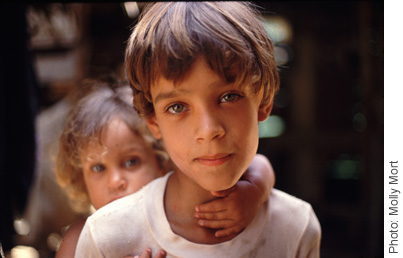Paying attention to neglected diseases
|

Today in Geneva, the World Health Organization launched a report on neglected tropical diseases.
I am encouraged by the fact that in the years since I started working in this field, many more organizations are coming forward to make an impact on a range of diseases that for too long have gone neglected and underfunded. We now have the potential to save and improve so many lives.
Intestinal worms, or soil transmitted helminthes (STH), have been the focus of my work at Johnson & Johnson for 5 years. While it's raised some eyebrows and has led some to ask why I chose to focus on a condition few have ever heard of, my answer is always the same. Paying attention to a disease that's preventable, treatable, and yes, neglected is where we can make an impact and therefore improve the lives of children in desperate need.
Recently, Johnson & Johnson announced a commitment to a five year plan to help make progress toward Millennium Development Goals four and five. It included, among other things, a four-fold increase in the donation of Vermox™, a product that treats STH infection. This donation can potentially reach more than 100 million children in Africa, Asia and Latin America.
But the commitment is about more than medicines. Reacting to the commitment, the WHO said that this is a model for others to adopt to tackle serious public health challenges. Our partner in this effort, Children Without Worms is leading the call for attention to a holistic approach to tackle the root causes of STH infection.
By helping to teach better hygiene practices in schools, calling for access to clean water and sanitation and working with community leaders to build their support for these essential interventions, this work could help address a preventable condition that significantly affects the health of a child and in severe cases, save their lives.
William Lin, Ph.D., is Director of Corporate Contributions at Johnson & Johnson














